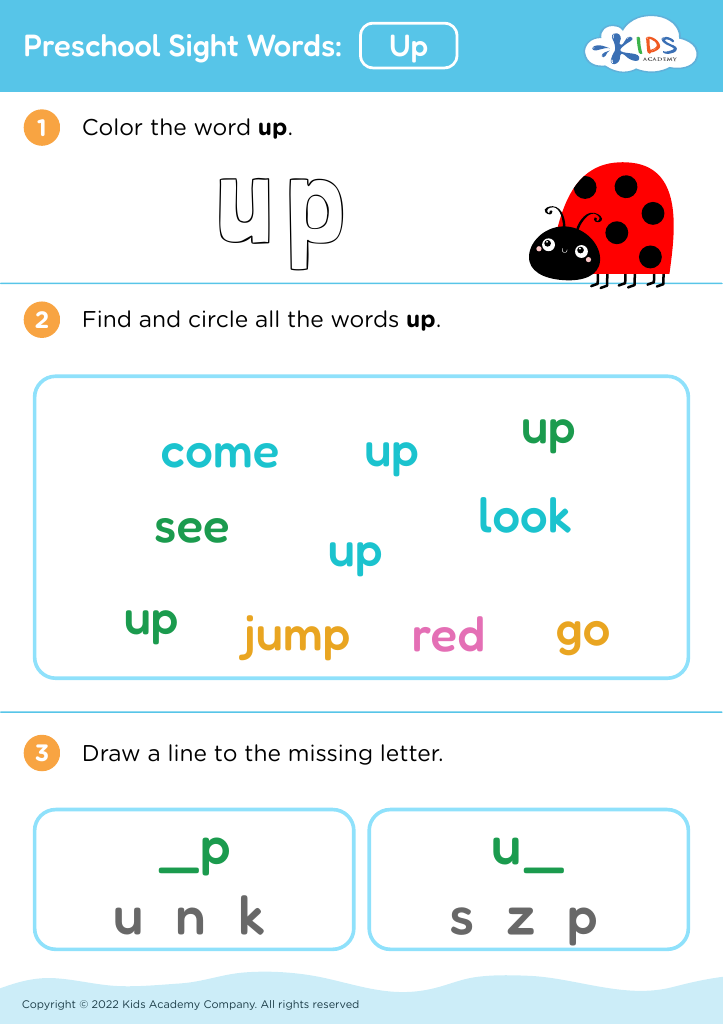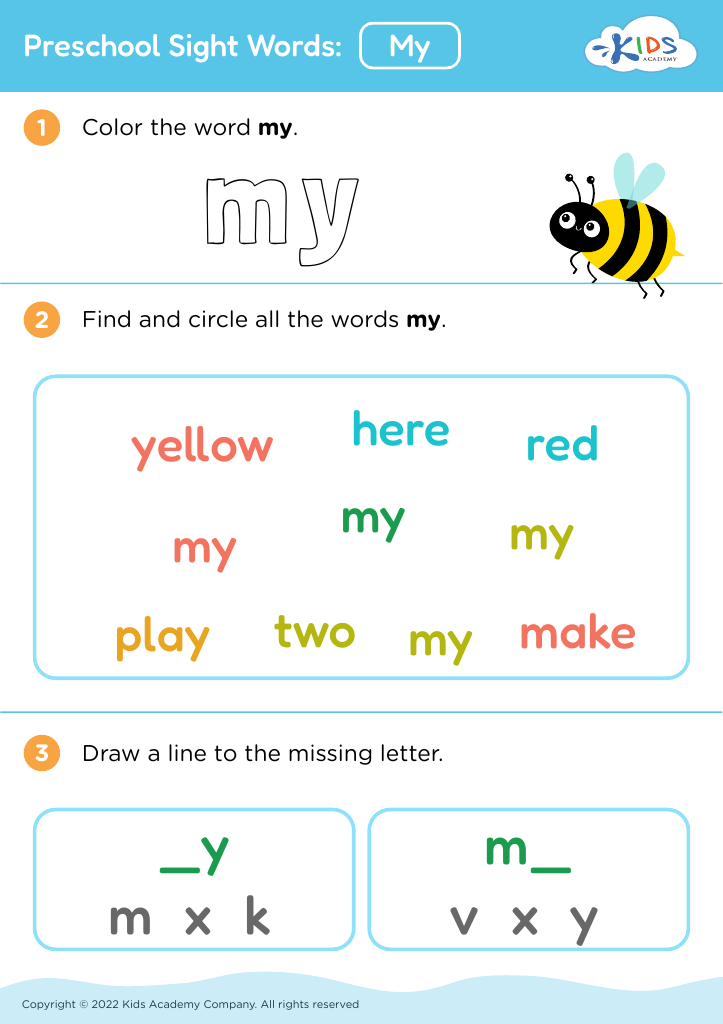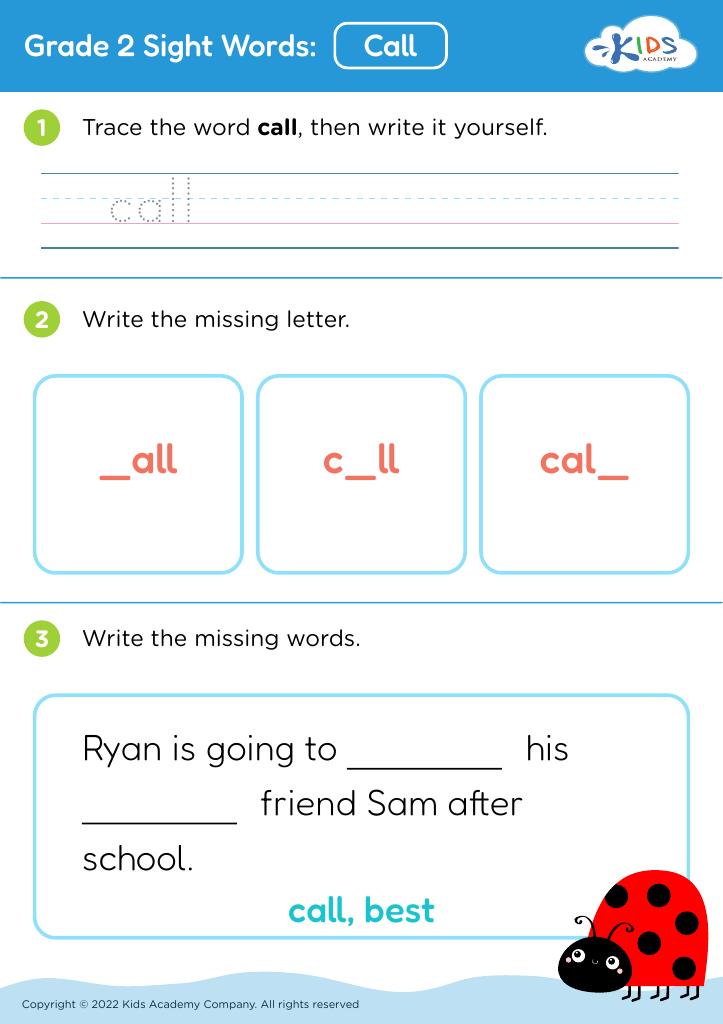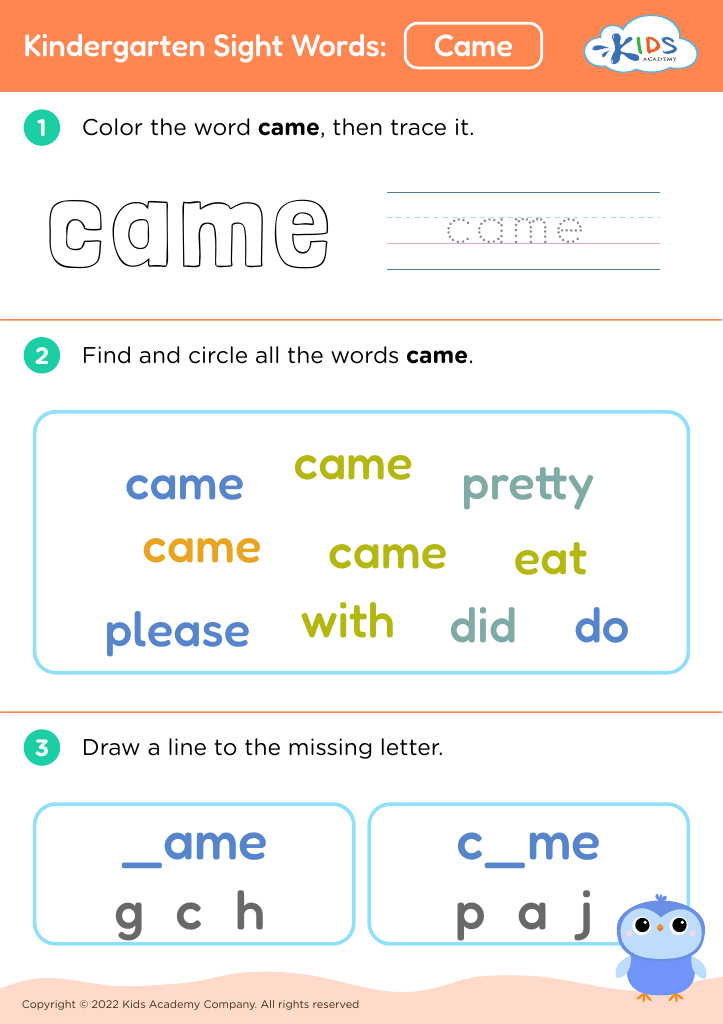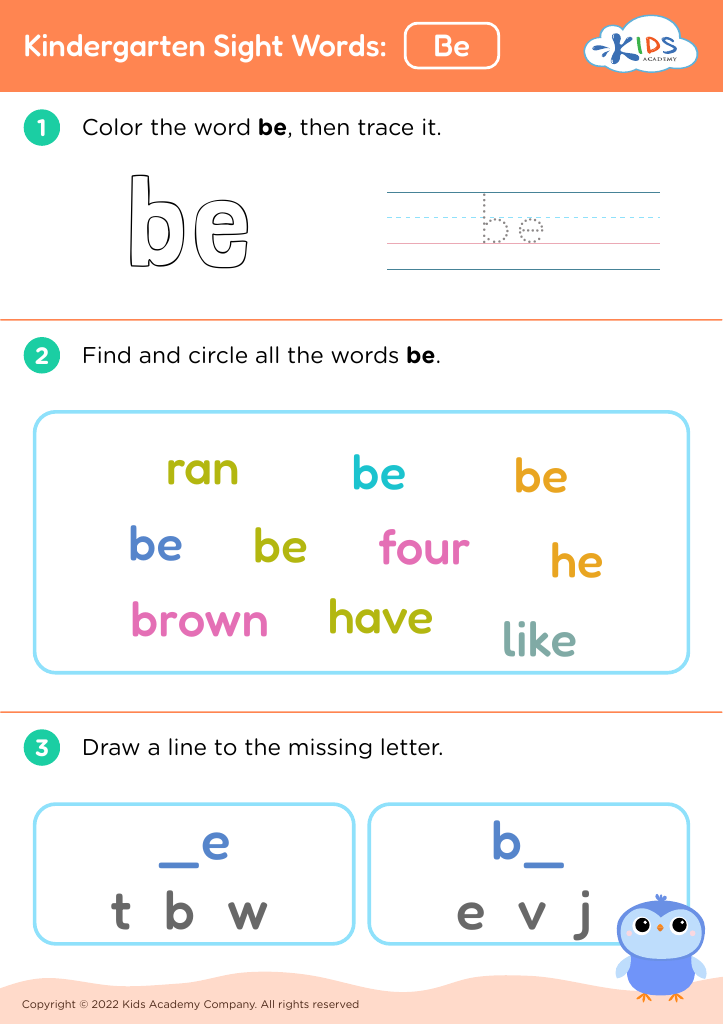Fraction comparison Building Vocabulary Worksheets for Ages 4-7
11 filtered results
-
From - To
Enhance your child's mathematical journey with our Fraction Comparison Building Vocabulary Worksheets, designed for ages 4-7. These engaging printables help young learners grasp essential concepts of fractions while expanding their vocabulary. Through interactive activities, children compare fractions and learn relevant terms in a fun, comprehensible way. Perfect for early grade students, each worksheet includes colorful illustrations to maintain interest and simplify understanding. Ideal for both classroom and at-home learning, our worksheets pave the way for stronger math foundations, fostering curiosity and confidence in young minds. Start building your child's fraction comparison skills today!
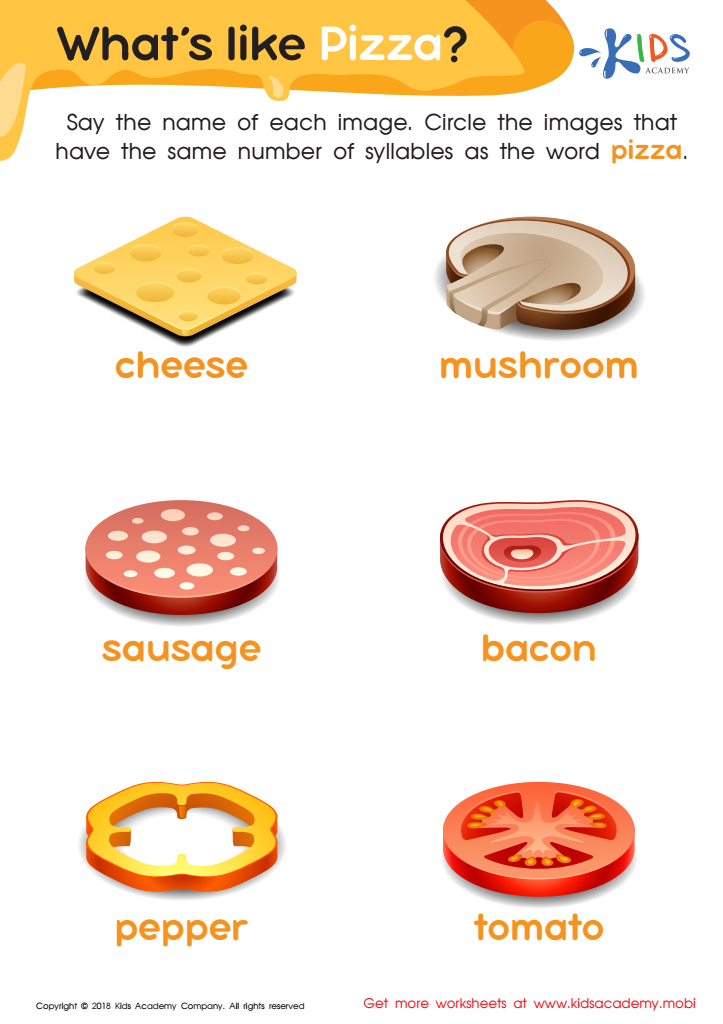

What's Like Pizza? Worksheet
Introducing fraction comparison vocabulary to young children, ages 4-7, serves as a foundational step in developing their mathematical literacy. Early exposure to concepts such as "greater than," "less than," "equal to," and the visual representation of fractions like halves, quarters, and thirds builds a solid understanding of relative size and numerical relationships. Here's why parents and teachers should care:
-
Cognitive Development: Learning about fractions stimulates critical thinking and problem-solving skills. Comparing fractions requires children to understand part-whole relationships and enhances their ability to reason and deduce.
-
Vocabulary Building: Incorporating words associated with fractions enriches a child’s mathematical vocabulary, making it easier for them to grasp more complex math concepts in higher grades.
-
Confidence Boost: Familiarity with fractions at an early age can reduce math anxiety later on. When children are comfortable with basic fractional concepts, they approach future math challenges with greater confidence.
-
Practical Relevance: Understanding fractions is crucial for everyday tasks, such as dividing snacks, sharing toys, or understanding time (like quarter-hour intervals). This practical application helps ground abstract concepts in tangible experiences.
-
Foundation for Advanced Math: Early knowledge of fractions sets the stage for algebra and other higher-level math topics by fostering a deep understanding of how numbers work together.
Pays attention to these building blocks makes math an accessible, enjoyable, and integrated part of a child's daily life, paving the way for future academic success.
 Assign to My Students
Assign to My Students
